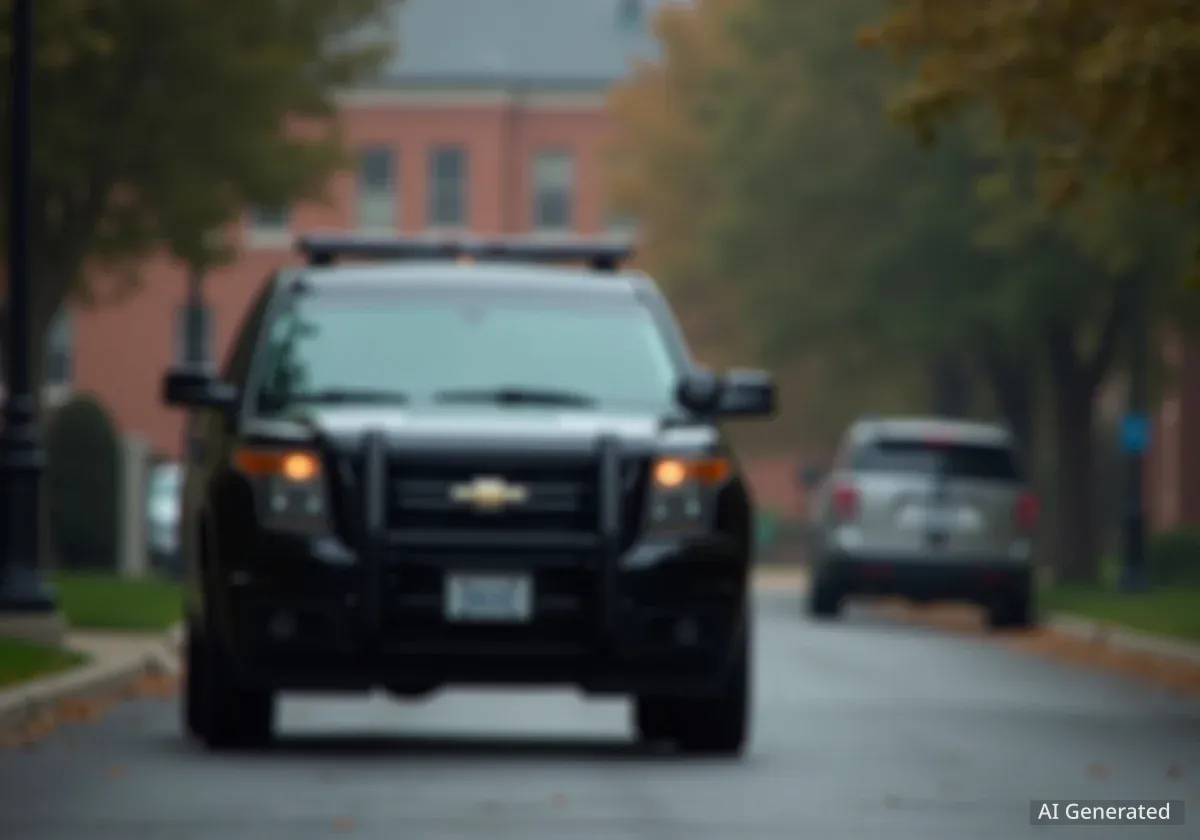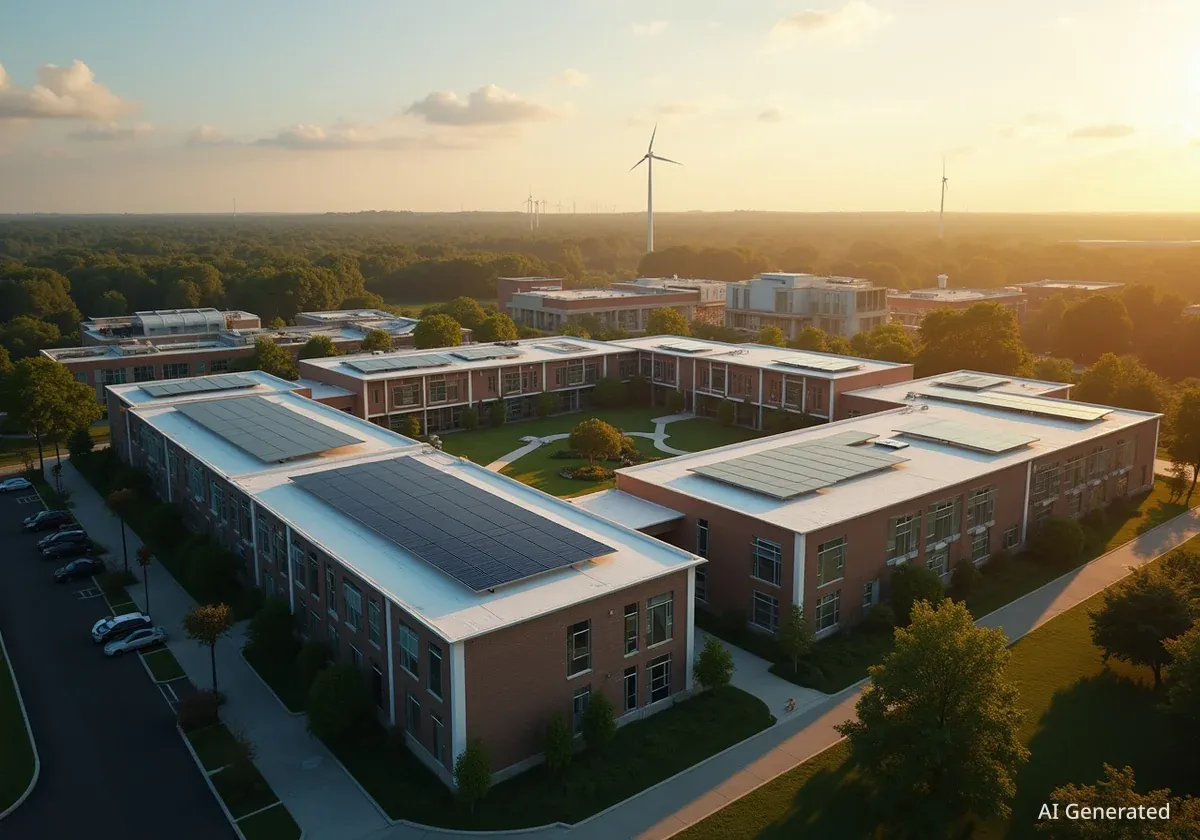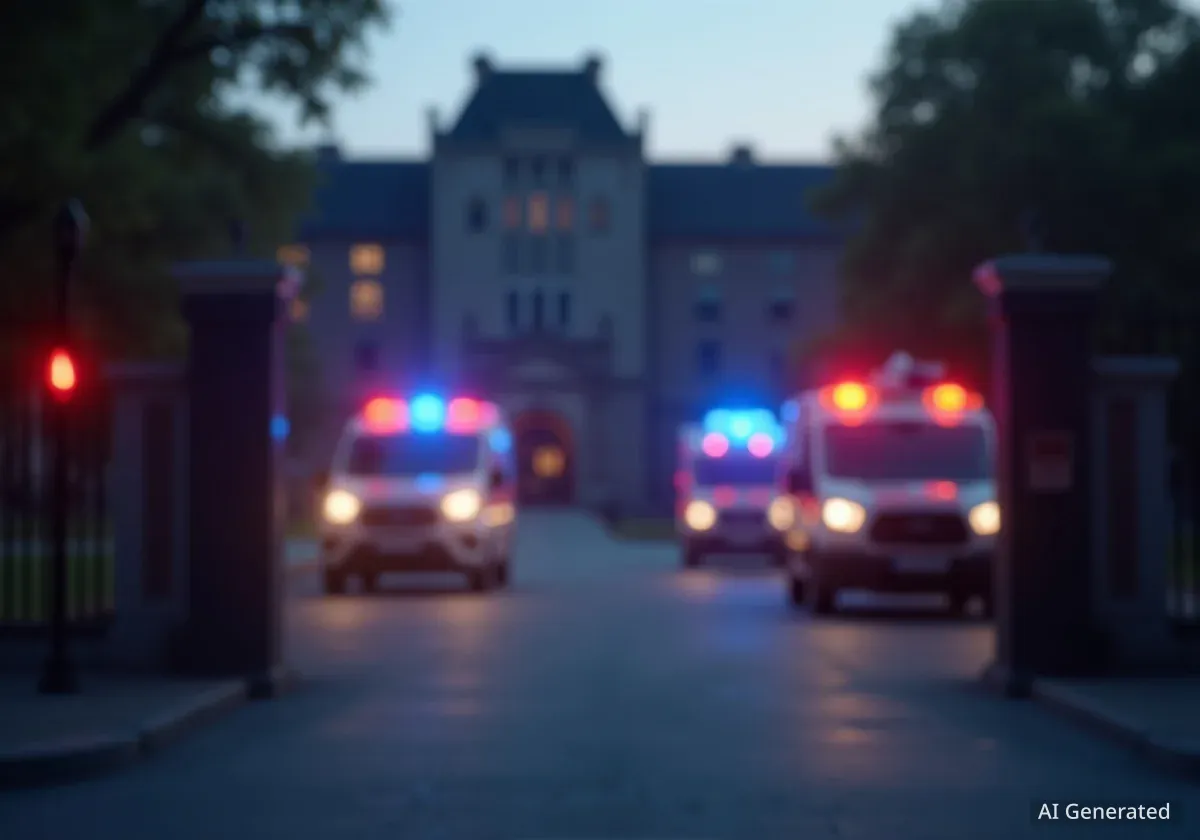George Washington University is navigating a period of intense federal government scrutiny following campus protests related to the war in Gaza. The U.S. Department of Justice has cited the university for alleged "deliberate indifference" to a hostile environment on campus, while an increased presence of law enforcement, including the National Guard, has heightened tensions among students and faculty.
The university administration has confirmed its willingness to engage in discussions with the Justice Department. However, many on campus express frustration over a lack of clear communication, leading to concerns about the institution's future actions and potential compromises with federal authorities.
Key Takeaways
- The Department of Justice found GW responsible for "deliberate indifference" to a hostile environment for Jewish and Israeli community members.
- An increased presence of National Guard, city, and campus police is visible on the Washington, D.C., campus.
- Students and faculty report feeling uncertain due to a lack of communication from the university administration about its negotiations with the federal government.
- Student organizations have issued demands for the university to resist federal pressure and ban external law enforcement from campus.
- The university has suspended two student groups and paused the registration of all new student organizations for the academic year.
Federal Intervention and University Response
The current situation at George Washington University stems from events that unfolded in the spring of 2024. A student encampment protesting the war in Gaza was established on the Foggy Bottom campus, drawing significant attention due to its proximity to the White House. The protest prompted a visit from Republican lawmakers who called for its removal.
After 14 days, campus and city police cleared the encampment, leading to 33 arrests. According to the campus newspaper, only six of those arrested were GW students. The incident was followed by a noticeable increase in security measures across the campus, including earlier building closures and a controversial plan to arm some university police officers.
Timeline of Federal Actions
The federal government's focus on GW intensified over several months. In February, the Trump administration identified GW as one of ten universities to be visited by the Federal Task Force to Combat Antisemitism. This was followed by a letter from the Department of Justice in August, which formally accused the university of failing to address a hostile environment on campus.
In response to the DOJ's letter, which invited the university into a "dialogue" to resolve the findings, GW's administration confirmed its cooperation. "We have responded to the Department of Justice that we are willing to meet with them to discuss their conclusions and share the many measures we have put in place to combat antisemitism," the university stated.
Campus Climate and Student Activism
The combination of federal oversight and heightened security has created an atmosphere of uncertainty and apprehension on campus. Many students and some faculty members feel they are not being adequately informed about the university's discussions with the government.
Neha Darsi, a senior and student organizer, suggested the administration is attempting to quietly comply with federal demands. She pointed to recent university actions as evidence, including the suspension of two student groups, Jewish Voice for Peace and Students for Justice for Palestine. The university has also halted the formation of any new student organizations for the entire academic year, a move officials said was to "improve the support structures" for existing groups.
"Not only are we banning your org, but no new orgs can also be formed," Darsi said. "It’s this abundance of red tape and I also think it’s an attempt to isolate students."
This sentiment is shared by others who attended a recent town hall organized by the Socialist Action Initiative, a campus group. The primary concern voiced by students was what they described as GW's "problem with policing."
Student Demands
A coalition of 45 student organizations has co-signed a letter with six demands for the university administration. Key demands include:
- Banning all external law enforcement from campus.
- Refusing to comply with the Trump administration's political pressure.
- Publicly declaring support for free speech.
- Providing clear guidelines for interactions with federal immigration authorities.
Faculty Concerns and the Path Forward
Faculty members have also expressed unease about the administration's perceived silence. Dara Orenstein, an associate professor of American studies and president of the university's chapter of the American Association of University Professors, described the situation as troubling.
"One, we wonder, then, what kinds of discussions are happening privately between our administration and the DOJ, not on paper or off the record," Orenstein stated. "Two, even if no talks are underway, we worry what the vagueness invites. GW might offer up far more than the Trump administration expects or imagines."
Orenstein noted that GW's location, just blocks from the White House, makes it particularly susceptible to being used as a "political football." She worries that a settlement could send a message about "who’s calling the shots." The visible security measures, she added, contribute to an unsettling environment.
"I’m walking around the campus now full of fences and gates and locked doors and various uniformed people with guns and tasers and other tools of violence," Orenstein said, describing the feeling as a continuation of the university's response to the spring encampment.
Uncertainty Looms Over Campus
As the academic year progresses, the GW community remains in a state of suspense. While the university publishes weekly "Federal Updates," students and faculty say these summaries of executive actions often lack specific information about GW's own situation.
Student organizers like Taytum Wymer are pushing for the university to take a firm stand. "If GW chooses to fight back against the federal government, it can win," Wymer argued. She believes the university has a responsibility to resist and set a precedent for other institutions facing similar pressures.
However, resistance could carry significant risks, including potential impacts on federal financial aid. Conversely, a settlement with the government could involve substantial fines or mandated changes, leading to worries about budget cuts to academic departments or student resources.
For now, the campus community is left waiting. Orenstein described the mood as "eerie" and "ominous." She explained, "This sort of absent presence of the federal government a few blocks away and is looming over us... The vibe is one of caution, or overall, maybe of a sort of waiting, a kind of suspended animation. Life goes on, but it feels quite ominous.”





